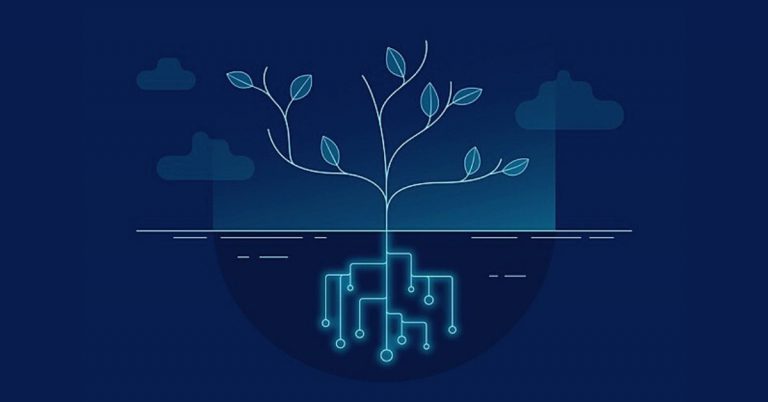
Digital sustainability in the workplace plays a key role in corporate social responsibility.
Digital technology and sustainability helps organisations to reduce carbon footprint. Moreover, it contributes to the econsystem as it reduces many forms of pollution.
Across the globe, in just 40 years, 1 billion hectares of forest areas have been cut down.
Today, deforestation areas are equivalent to the size of Europe.
Among other reasons, deforestation has a vital role in the production of paper.
Paper is useful but also extremely wasteful.
Consequently, people and businesses need to take action. Advanced technologies create a space for people and businesses to introduce sustainable initiatives.
Organisations are transforming into a digital workplace with the use of process automation. That is, become more environmental friendly.
Technology and digital transformation significantly aid digital sustainability. Above all, companies ensure corporate social responsibility from meeting their goals more ethically.
What is Digital Sustainability?
Digital Sustainability refers to how companies adopt sustainable initiatives into the workplace through technological investments. Moreover, sustainability through digital transformation is on the rise.
Adopting technology into company practices is a necessity in the corporate world. Simply because technology drives productivity and in turn, profitability. That being said, corporate leaders are looking for more holistic ways to carry out business processes. Such as, introducing digital sustainability as part of business practicality.
Companies are seeking environmental justice with the help of digital sustainability innovation.
We can commit to making a positive impact on our global environment by participating in sustainable activities.
Why you should ditch paper and introduce digital and sustainable initiatives
A lack of sustainable initiatives will continue to harm the eco-system. Consequently from paper manufacturing, our global environment suffers from air, water, soil and land pollution.
And that is not to mention disposals and paper-waste.
The pulp and paper industry heavily rely on deforestation as a source for raw materials.
More than one hundred million hectares of forests are cut down to supply the pulp and paper industry.

Cutting down trees is the beginning of the production cycle in the paper and pulp industry. Once carved, they are burned, releasing carbon dioxide (CO2) into the atmosphere.
During manufacturing, nitrogen oxides (NOx) and sulfer oxides (SOx) are also emitted. Consequently, people can suffer long-term health effects as a result of global warming.
As time goes on, we increasingly see the impact of global warming. Hence why many organisations now prioritise digital sustainability. That is, as an alternative to mainstream methods of carrying out business operations.
In addition, deforestation endangers natural habitats and species that lived in the forests.
On another note, the pulp and paper industry uses more water for production than any other industry.
It takes 10 litres of water to make one single A4 page.
That is not all, 40% of waste in landfills is from paper. Wastewater from paper and pulp mills contain solids, dissolved organic matter and inorganic materials such as chlorates and composites of metal.
Digital technology and sustainability provide opportunity to change the status of our eco-system.
Do you use a lot of paper? And are you ready to make a change?
Think about how much harm is done from paper-use in your office alone. More importantly, consider how a paperless, green office can help. Process automation tools empower us to easily incorporate sustainable initiatives into offices. In turn, it supports a healthier global environment.
Paper-based processes are expensive and they consume a lot of employees' time
Unfortunately, many organisations still use paper-based documents to carry out business processes.
Handling business processes using paper is expensive and it soaks up a lot of employees’ time. As well as that, errors can easily occur. This then results in extra use of paper along with disposals.

Paper is used in multiple departments if not all, across businesses. For instance, HR, Finance, Purchasing and R&D manage a lot of processes using paper-based documents.
Vast majority of organisations that still use paper simply do it out of convenience.
Certainly, more companies are adopting sustainable initiatives to combat paper-use in the workplace.
Digital sustainability is progressively becoming an interest for individuals outside of the work place.
Even job seekers pay attention to corporate cultural values such as green practices. Therefore, they tend to search for employers that do take this into consideration. That is, equal values and beliefs regarding sustainable initiatives.
Simply put, digital sustainability is good for the environment and good for your brand. This explains the increasing numbers of businesses enforcing green actions into the workplace.
In addition, digital technology and sustainability is more efficient in terms of cost, time and productivity.
Digital processes are more efficient and they bring agility to organisations
Typical digital business processes include approvals such as ticketing, leave requests, employee onboarding, incident reporting, procurement, po approval, invoicing and so on.
All of these business processes can be easily automated with process automation workflow software.
Digital sustainability isn’t only beneficial to the environment.
Managing and tracking performance will be easier with a built-in personalized dashboard. Further, resulting in more efficiencies in the overall process.
Performing tasks digitally enables employees to work remotely. In terms of a crisis, such as the global spread of COVID-19, working from home became the only option for some. This also increased the urgency to digitalise and move to a modern workplace.
Let’s have a look at digital sustainability examples and how they can help you.
Digital sustainability creates a green office environment and improves efficiency
Think about how much paper is used in your office daily. As well as that, think about how many of those pages are disposed.
Adopting process automation empowers organisations to completely eliminate paper. By doing so, businesses don’t need to buy, use or dispose of paper. Instantly, carbon footprint reduces with the use of digital sustainability.
Engaging in environmental friendly and sustainable initiatives in the workplace goes a long way to conserving the global environment.
In addition, using technology to do so, can derive many internal benefits.
Manually carrying out the same repetitive tasks is quite boring.
When they are managed across paper it is time-consuming, costly and prone to errors. Moreover, communication is harder to achieve with offline manual methods. For instance, it gets complicated when staff collaborate using paper-based documents.
Processes can be streamlined with workflow automation. Access can be given to relevant departments if necessary.
As a result, collaboration significantly improves and tasks can be completed within a single place.
Process automation enables business tasks to be completed in a digital platform, enhancing transparency and visibility. For example, each staff member with access can see consistent updates. This enables the process to run more smoothly and at a faster pace.
Therefore, errors are reduced, less time is consumed and consequently, productivity increases.
Digital sustainability contributes to a greener global environment
When one organisation adopts sustainable initiatives, it helps the global environment. However, when many organisations adopt sustainable initiatives, it significantly helps the global environment.
Therefore, injecting digital sustainability into your organisation’s practises unquestionably contributes. For example, those engaging in sustainable initiatives are all striving to reach the same end goal. That is, TO SAVE THE PLANET.
If less offices require paper to carry out business processes, demand will weaken in the paper and pulp industry.

Subsequently, supply will decrease, conserving more forest areas. As a result, gas emissions such as Carbon Dioxide (CO2) reduce.
Furthermore, fewer natural habits and species will be endangered. And there will be a reduction in wastewater from paper and pulp mills.
Eliminating paper and introducing digital sustainability will preserve nature, making a huge difference!
Go green! Introduce digital initiatives into your workplace with Kianda platform
Paper is hazardous to the world, to people and other species. With that said, digital sustainability provides a solution. Digital technology and sustainability improves the condition of the environment.
Reduce air, water, soil and land pollution by eliminating paper in your organisation. Go paperless today!
Kianda transforms business processes from paper into digital, completely eliminating the need for paper.
Manual, paper processes are prone to errors, delays and lack visibility, especially when collaborating across departments.
Easily build digital forms and workflows to streamline business processes with Kianda platform.
With paperless solutions, you can store data, not documents, while optimising collaboration between your teams. In addition, manage tasks in real-time and review progress with personalised dashboards. This can all be achieved from your browser, tablet or mobile device at any given time.



